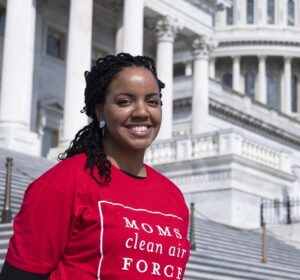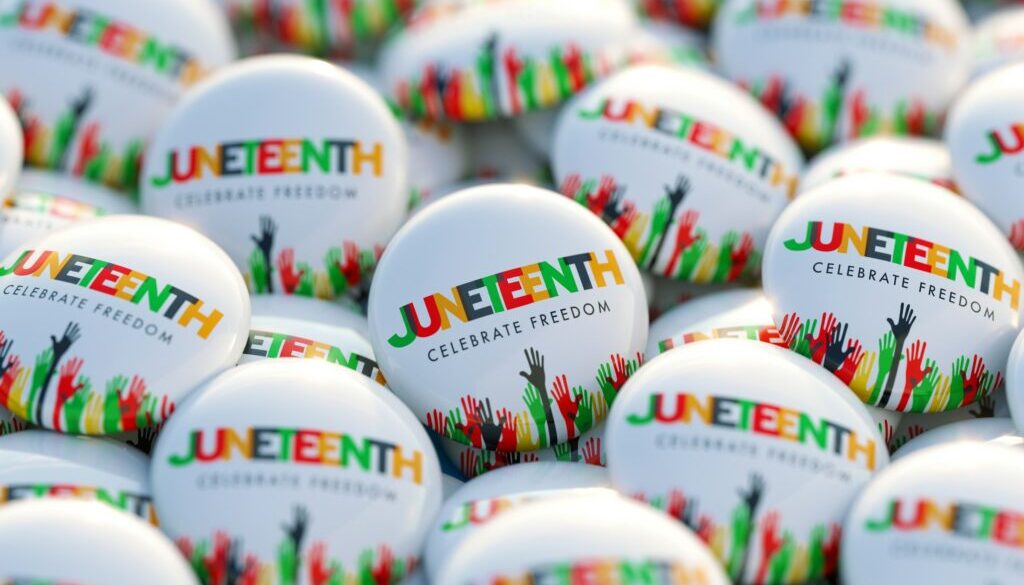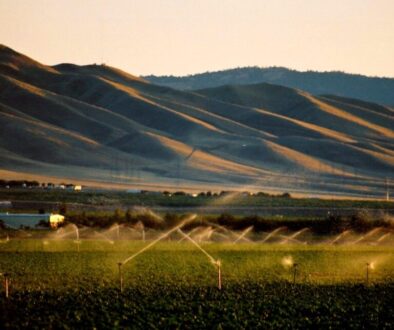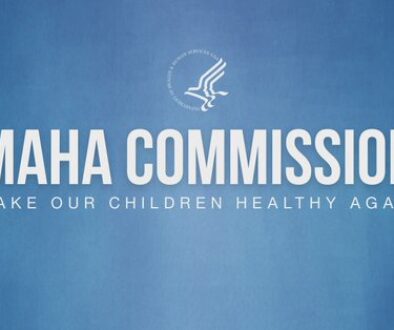Juneteenth, the EPA and recognition of freedom, liberty and justice

By Stephanie Reese, director of strategic implementation and justice at Moms Clean Air Force
The announcement this month that the city of Tulsa will provide reparations to the survivors and descendants of the 1921 Race Massacre fills me with a mix of relief and hope but also lingering doubt.
Yes, this truly is a historic moment. Yes, it’s also a call to keep raising our voices, even if it’s future generations who reap the benefits of our courage and audacity. And yes, this moment is a lesson for all that the horrors our ancestors endured can and should no longer be ignored, rewritten or suppressed.
But above all, the fight for acknowledgment in Tulsa echoes a much larger truth — one that reverberates through every corner of our history: freedom, in this great country, has always been unevenly granted and too often delayed. Indeed, in many communities — especially communities of color — access to rights that many people today take for granted hasn’t always been guaranteed.
Consider today, Juneteenth, marking the end of slavery and a celebration of our right to be free, safe, healthy and treated with dignity. But for far too many those rights are still being trampled upon. One glaring example: the right to breathe clean air, to drink safe water, and to live in communities that aren’t drowning in pollution or ignored in policy decisions is still a long-sought dream.
That’s why the massive rollbacks to key environmental protections by the Trump administration are such a big deal. For decades, US Environmental Protection Agency (EPA) standards addressed serious environmental threats that impact all of us, from air pollution to the spread of toxic chemicals and the dangerous greenhouse gases that have led to the alarming warming of our planet. Its work made it abundantly clear that protecting the public’s health — everyone’s health — matters.
Now many of these protections are on the chopping block. This signals to certain communities, especially communities of color, that their health and well-being just don’t count.
So, while on the surface, Juneteenth and environmental protections may at first seem unrelated, they share something fundamental — they represent hard-fought acknowledgment of systemic harms, and they both underscore the urgent need for a more just, sustainable, and equitable future.
Juneteenth and environmental protections … share something fundamental — they represent hard-fought acknowledgment of systemic harms, and they both underscore the urgent need for a more just, sustainable, and equitable future.
The issue at hand isn’t just about whether something is officially recognized — whether it’s the emancipation of slaves across America or greenhouse gases as a public health risk. Rather, it’s about whether those recognitions are followed by meaningful action. Suppressing one, or rolling back the other, echoes the broader experience of many communities of color in this country of being seen but not protected.
And this administration’s tone-deaf efforts to weaken environmental regulations, knowing the impact it will have on our communities of color, are as misguided as Senator Joni Ernst telling her constituents, “we’re all going to die,” in the face of cutting millions off Medicaid. The logic is flawed and the message is callous.
The EPA’s work is more than regulatory. It has significant implications for civil rights. By setting standards that protect public health, it intersects directly with justice by recognizing and protecting vulnerable populations from the health impacts of climate change and pollution. Undermining this important work would only worsen the already disproportionate burden placed on communities of color and low-income families — communities that are often the first and hardest hit by climate-related disasters and pollution. In the United States, people of color breathe more particulate air pollution on average, a finding that holds across income levels and regions of the US.
The EPA’s work is more than regulatory. It has significant implications for civil rights.
That’s why the fight for clean air and clean water for all people, especially communities historically burdened by environmental harm — is one of the great civil rights fights of the 21st century.
And that’s why the freedom Juneteenth represents is intrinsically connected to the ongoing fight for environmental justice — a fight that includes clean air, safe water, healthy schools, and thriving communities. These aren’t luxuries, they’re rights. And yet, history shows us how often they’ve been denied to Black and Brown people.
The pattern of unequal environmental harm faced by communities of color persists today. It may no longer be seen in the blatant racist practice of redlining — a term used to describe how institutions and systems historically confined people of color to specific neighborhoods. Often these areas were targeted for industrial development, placing polluting facilities disproportionately near communities of color. A 1987 landmark study found that race remains the single most reliable predictor of where hazardous waste sites are located in the US, and decades later, race is still a factor.
Justice means we name these patterns, and we work to dismantle them. Protecting our most vulnerable communities, and honoring Juneteenth are not separate fights. They are deeply connected. At their core, they both demand the same thing, recognition of our rights as individuals to freedom, including the freedom to live with dignity, health and justice.
Opinion columns published in The New Lede represent the views of the individual(s) authoring the columns and not necessarily the perspectives of TNL editors.
(Featured photo by Getty Images/Unsplash+)



